A U.S.-launched Trade Dispute Is Helping Toyota in One Key Market, but for How Long?

While the trade situation is still very much in flux, Toyota sees itself as standing to gain from the turmoil, just not in the United States. The automaker, along with other Japanese brands, finds itself in an advantageous position in China — a massive market facing its own troubles.
China’s anger at the U.S., and vice versa, could mean big bucks in the short term for Toyota.
According to the Financial Times, Toyota sees China as a big opportunity, and wants to capitalize on the current trade situation. In early summer, in response to tariffs levelled by the U.S., China slapped new tariffs on top of the ones it already applied to imported American cars. At the same time, it lowered tariffs on vehicles brought in from other countries, including Japan.
Toyota performs much of its manufacturing in Japan, and all of the Lexus-branded vehicle it sells in China arise from its home country. As the tariffs translated into higher prices for many U.S. luxury cars sold in that market, Lexus sales skyrocketed in August. The brand’s Chinese sales rose 59 percent, year over year, last month, setting a new monthly record.
Despite a three-month downturn in Chinese auto sales sparked by the trade tiff, Toyota recorded a 23 percent year-over-year sales increase in August. Compare that to Ford Motor Company’s 36-percent drop.
“It’s inevitable for Toyota to shift to China with a sharp slowdown in the US,” Masahiro Akita, analyst at Credit Suisse, told FT. “It’s also perfect for Toyota since it will help them to maintain their commitment to producing 3m vehicles in Japan.”
Last month, Reuters reported that Toyota planned to boost its Chinese automotive production by 20 percent, or another 240,000 vehicles per year. The automaker has assembly plants in Tianjin and Guangzhou, building 1.16 million vehicles per year. Increased state subsidies for electric vehicles and the country’s promise to relax, then eliminate, rules on foreign ownership has Toyota seeing green.
While much of China’s energy goes into building (and talking up) electric vehicles, it remains interested in hybrid technology — something Toyota knows much about. Sources tell FT that the country wants the maker of the Prius to share its technological prowess in that field.
Of course, there’s many ways this situation can turn sour for Toyota. China’s economy could tank, leaving fewer buyers for Toyota’s vehicles, or the U.S. could levy new tariffs on Japan, throwing its North American operations into chaos. Over the first eight months of 2018, Toyota Motor Corp. sales in the U.S. rose 1 percent, to 1,621,137 vehicles.
[Image: Toyota]

More by Steph Willems
Latest Car Reviews
Read moreLatest Product Reviews
Read moreRecent Comments
- Namesakeone If I were the parent of a teenage daughter, I would want her in an H1 Hummer. It would be big enough to protect her in a crash, too big for her to afford the fuel (and thus keep her home), big enough to intimidate her in a parallel-parking situation (and thus keep her home), and the transmission tunnel would prevent backseat sex.If I were the parent of a teenage son, I would want him to have, for his first wheeled transportation...a ride-on lawnmower. For obvious reasons.
- ToolGuy If I were a teen under the tutelage of one of the B&B, I think it would make perfect sense to jump straight into one of those "forever cars"... see then I could drive it forever and not have to worry about ever replacing it. This plan seems flawless, doesn't it?
- Rover Sig A short cab pickup truck, F150 or C/K-1500 or Ram, preferably a 6 cyl. These have no room for more than one or two passengers (USAA stats show biggest factor in teenage accidents is a vehicle full of kids) and no back seat (common sense tells you what back seats are used for). In a full-size pickup truck, the inevitable teenage accident is more survivable. Second choice would be an old full-size car, but these have all but disappeared from the used car lots. The "cute small car" is a death trap.
- W Conrad Sure every technology has some environmental impact, but those stuck in fossil fuel land are just not seeing the future of EV's makes sense. Rather than making EV's even better, these automakers are sticking with what they know. It will mean their end.
- Add Lightness A simple to fix, strong, 3 pedal car that has been tenderized on every corner.



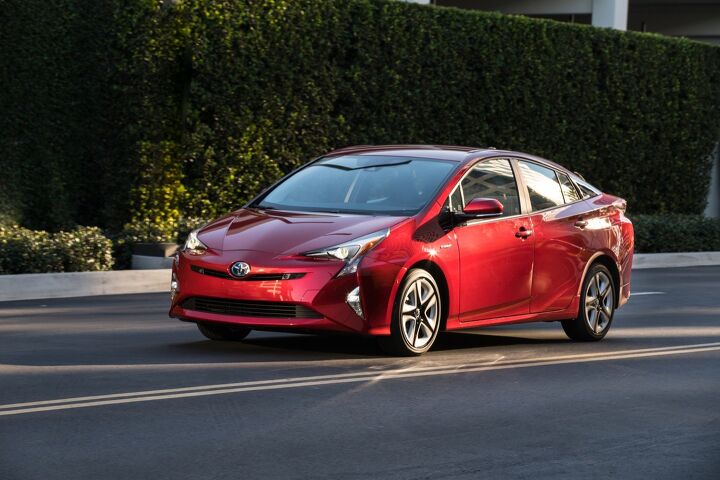
















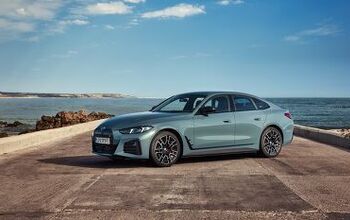




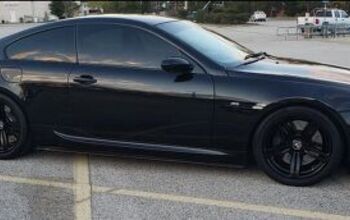



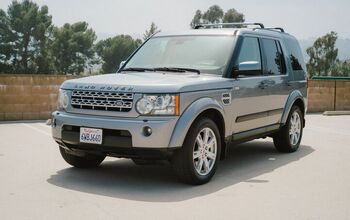

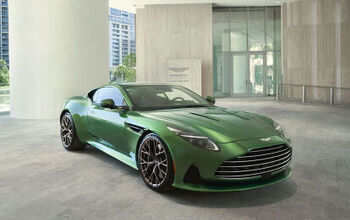


Comments
Join the conversation
What I got from this article is that China has Import Taxes, Vats, Displacement Taxes and a Final Sales Tax on imported products. China does this to incentivize manufacturers to produce their products domestically and provides refunds/incentives to export does products from their Chinese factories. And now they have raised does Taxes on imported American Luxury vehicles, and other goods after the USA raised reciprocal VAT's on Chinese made cars, steel, aluminum and other manufactured goods. This simply looks like China wants to keep the status quo, have Foreign markets open to Chinese made goods while keeping their domestic markets closed and and controlled.
STOP THE PRESSES! Toyota has a good month in China. Bravo when TTAC sends a report card home, to be signed by Toyota's parents, there should be a gold star in the China sales row. In other news the Cleavland Browns won their first game in 2 years. Lets talk Superbowl.